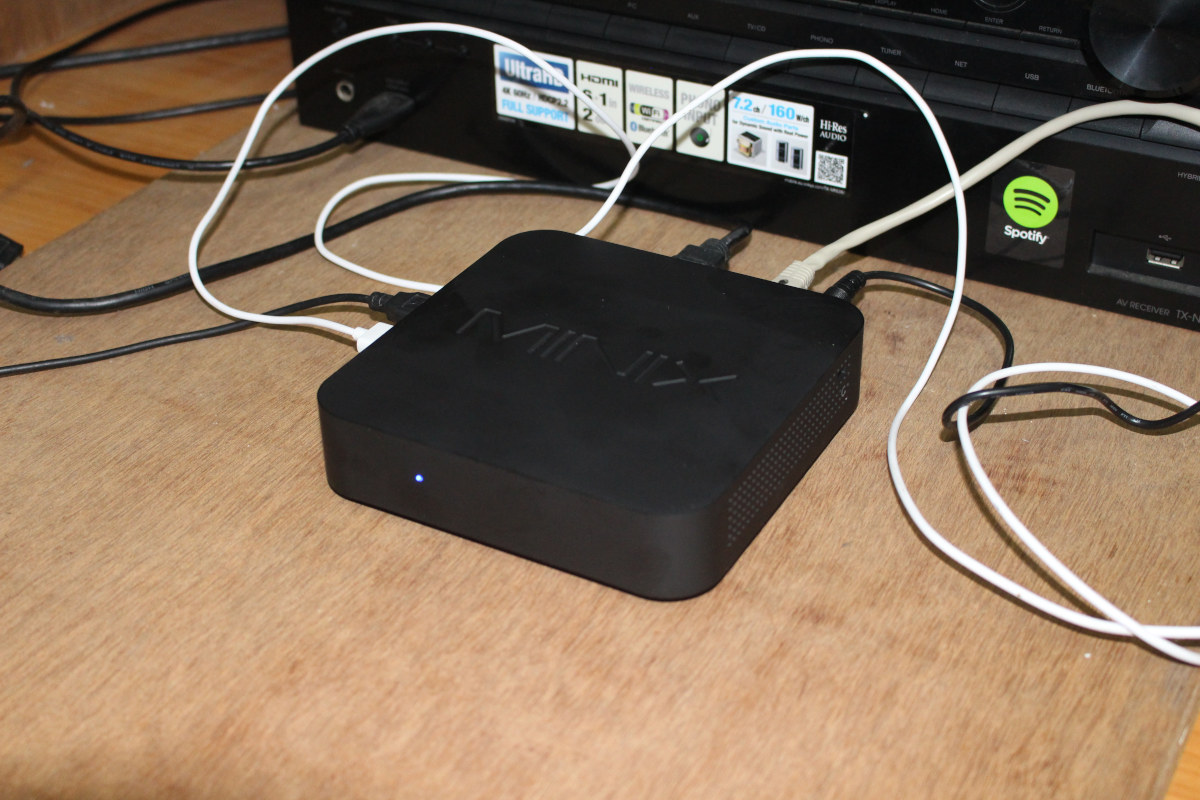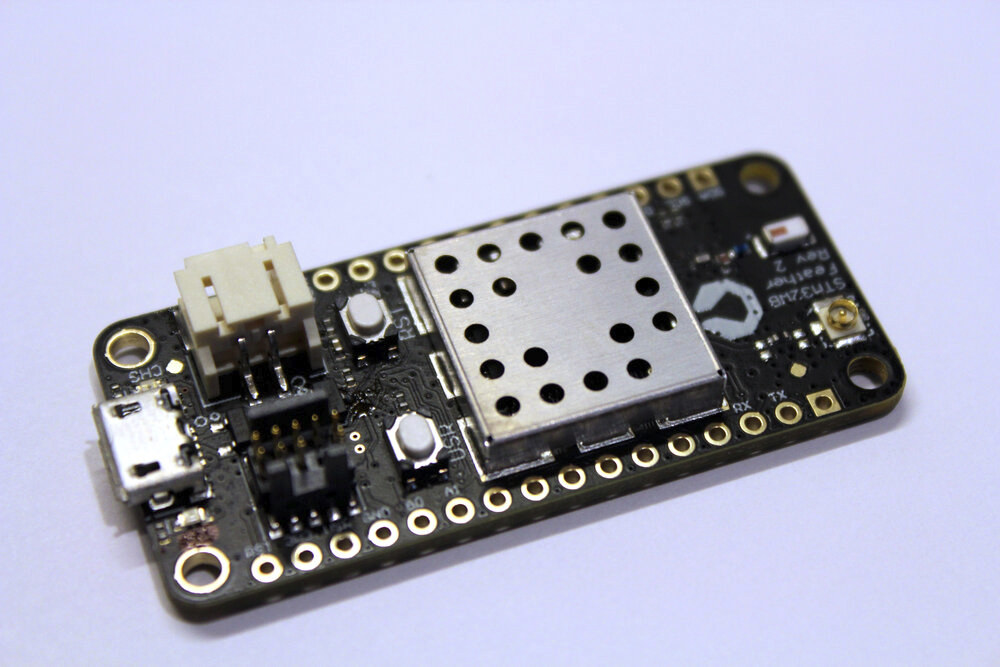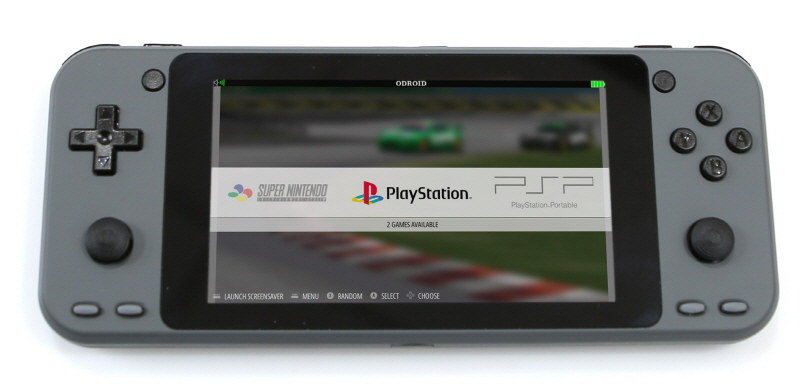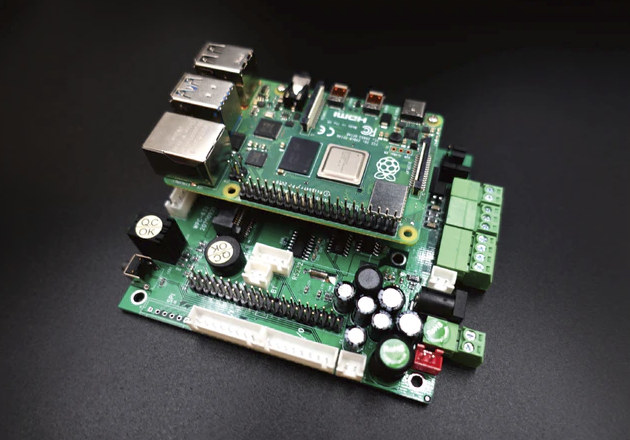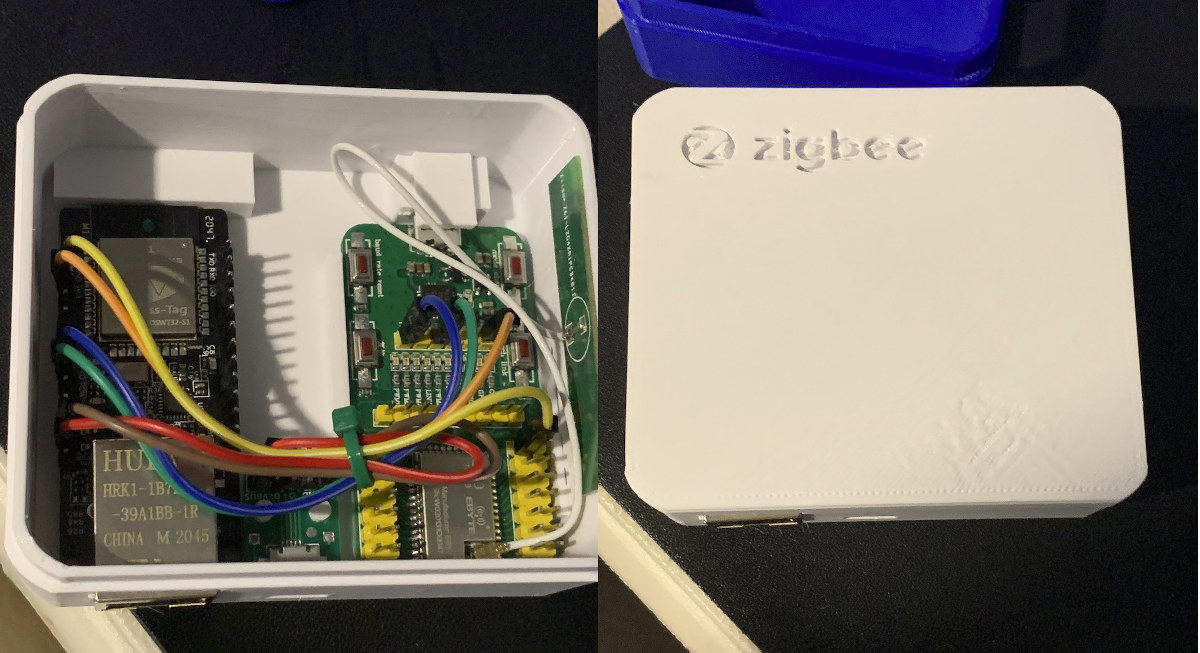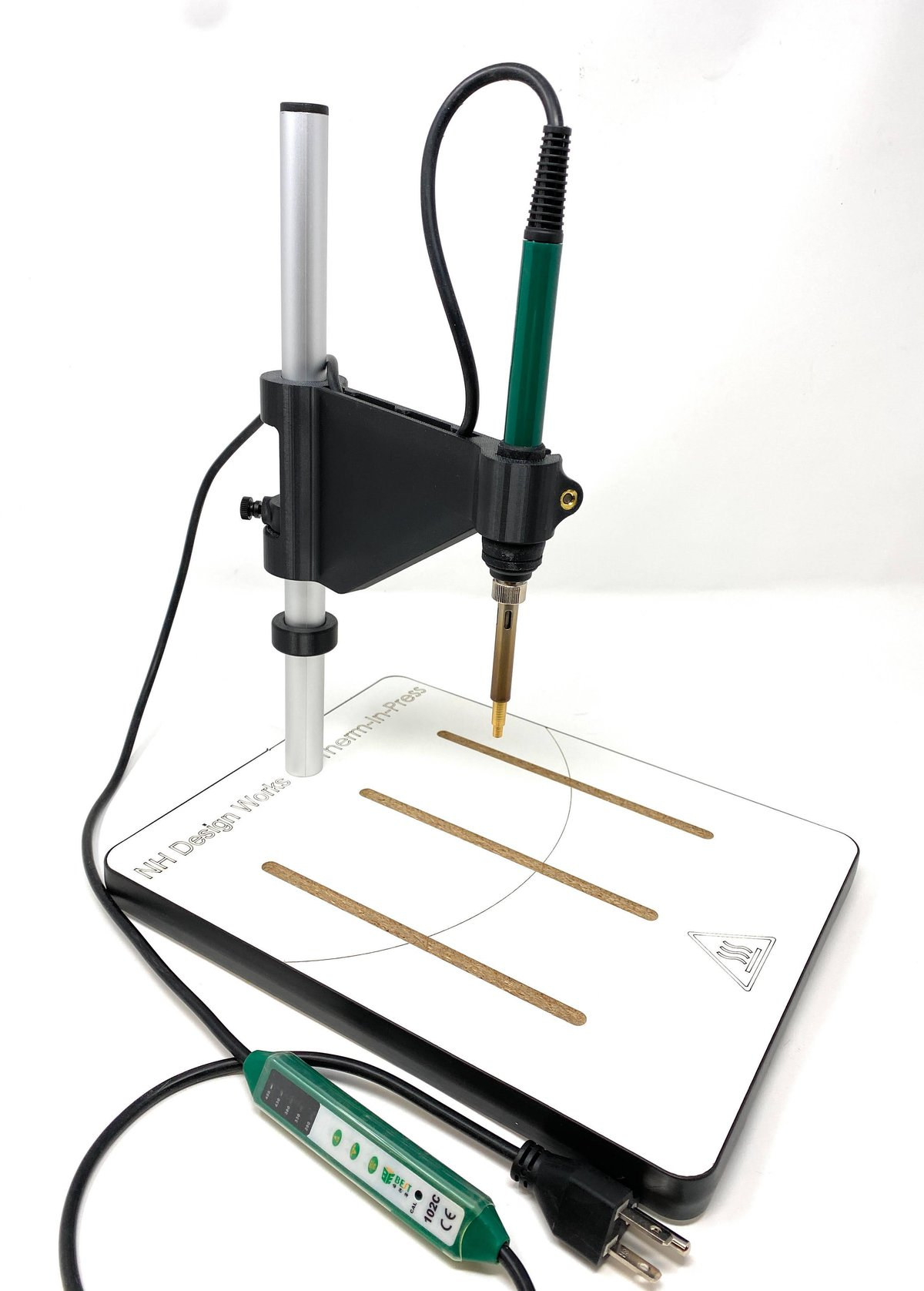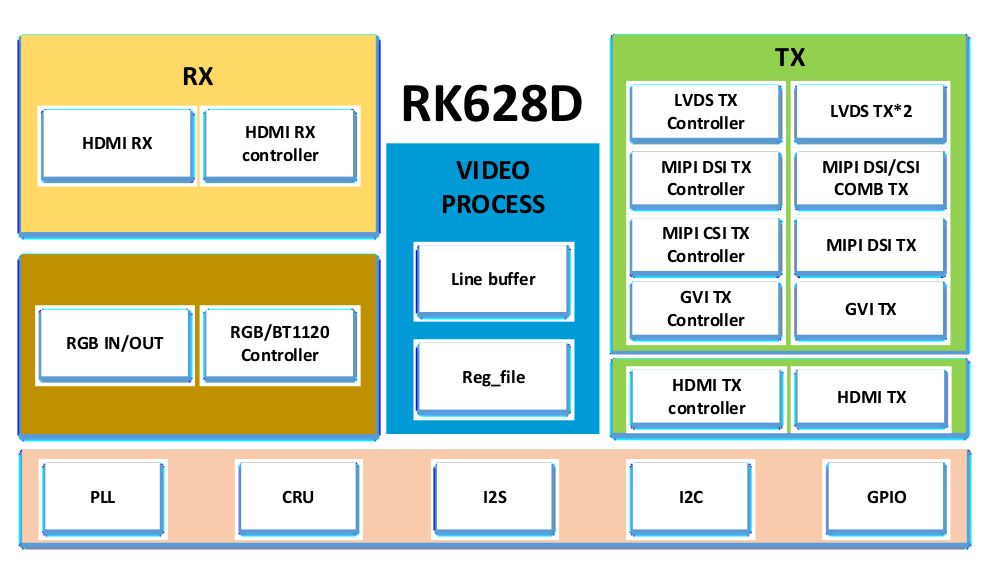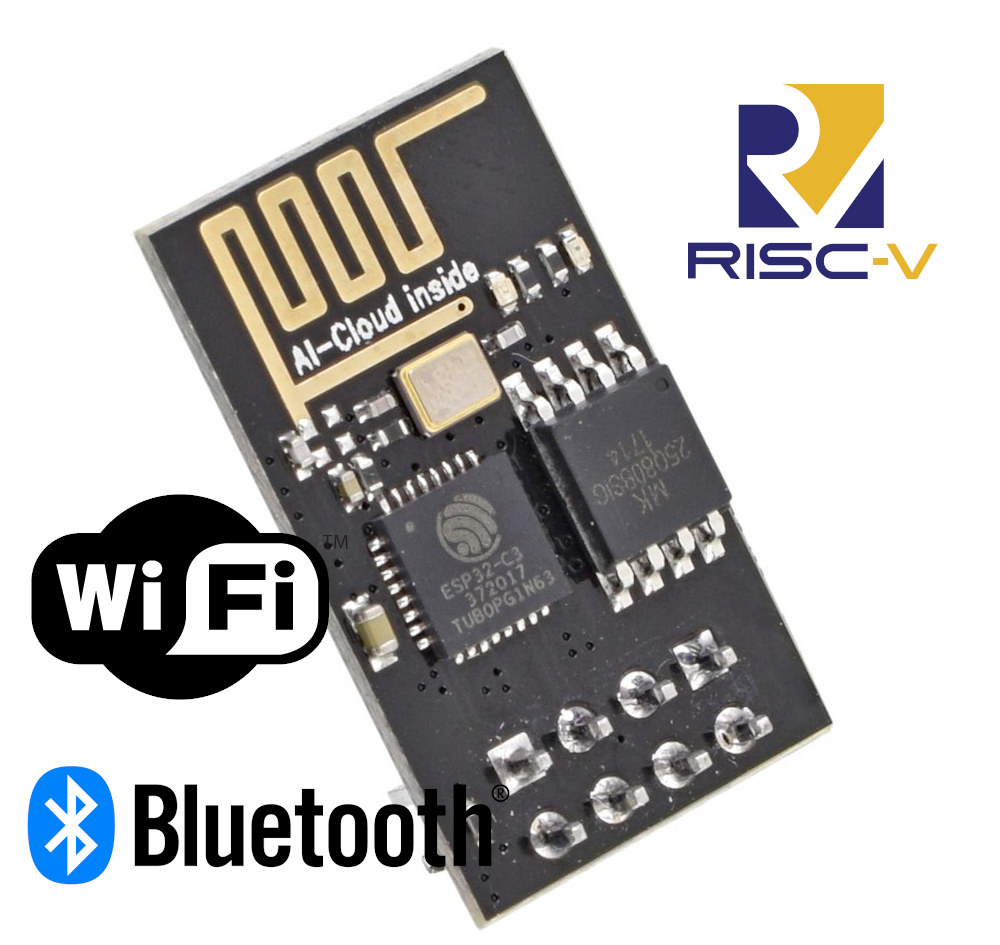Back in 2018 MINIX Introduced NEO J50C-4 Windows 10 Pro mini PC based on Intel Pentium J5005 Gemini Lake processor and fitted with 4GB RAM and 32GB eMMC flash. It never got released in this configuration, as due to Gemini Lake processors shortage the company relaunched it with a 64GB eMMC flash in 2019. Since then, the company launched the NEO J50C-4 Plus with a 240GB SSD and 4GB RAM, which I did not review. But now the Hong Kong company has introduced a new model with NEO J50C-4 Max equipped with 8GB RAM and 240GB SSD. I’ve just received a sample, but since the design and specifications are the same as the earlier NEO J50C model except for the SSD and RAM capacity, I’ll focus this mini review on the main differences, and small issues I had last year. NEO J50C-4 Max Unboxing The package looks familiar… And so […]
STM32WB Feather board features STM32WB55 Bluetooth 5.0 SoC
STMicro announced the availability of their first wireless STM32 MCU last year with STM32WB55 Bluetooth 5.0 and 802.15.4 Cortex-M4/M0+ microcontroller together with P-NUCLEO-WB55 Development Pack. A company called Reclaimer Labs has now designed a Feather-compatible board with the wireless MCU, more specifically STM32WBCGU6, and simply called STM32WB Feather board. STM32WB Feather Board specifications: Wireless MCU – STMicro STM32WB55CG Bluetooth SoC with Arm Cortex-M4 application core, Arm Cortex-M0+ Bluetooth co-processor, 1 MB Flash storage, 256 KB of SRAM, USB ROM Bootloader Storage – 128 Mbit SPI NOR Flash memory Bluetooth antennas – On-board chip antenna, u.Fl connector for external antenna Expansion – 16-pin + 12-pin unpopulated headers with 6x analog input pins UART, I2C, SPI, and 7x GPIO pins Debugging – Standard SWD debug connector Misc – User button and LED, 32.768 kHz crystal for LSE/RTC Power Supply 5V via micro USB port 2-pin battery header, LiPo battery charger Dimensions – […]
ODROID-Go Super Ubuntu portable gaming console gets a larger 5-inch display
Hardkernel introduced ODROID-Go ESP32-based portable gaming console in 2018. The following year, the Korean company went up the scale with ODROID-Go Advance (aka OGA) running Linux on Rockchip RK3326 quad-core Cortex-A35 processor. We’ve now got a new 2020 announcement with ODROID-Go Super (OGS) with most of the same specifications as OGA, but a larger 5-inch 854×480 display replacing the 3.5-inch 480×320 display, a higher capacity battery, and the addition of a second analog joystick and dedicated volume buttons. ODROID-Go Super (preliminary) specifications: SoC – Rockchip RK3326 quad-core Arm Cortex-A35 processor @ 1.3GHz with Mali-G31 MP2 GPU System Memory – 1GB DDR3L @ 786Mhz, 32 Bits bus width Storage – 16MB SPI Flash for bootloader, push-push Micro SD Card slot (UHS-1 Capable interface) Display – 5-inch 854×480 TFT LCD (MIPI-DSI interface) Audio – 3.5mm earphone stereo jack, 0.5Watt 8Ω Mono speaker USB – 1x USB 2.0 host port Buttons – F1, […]
Industrial 5G/4G Base Shield supports Raspberry Pi, Jetson Nano, other SBC’s (Crowdfunding)
Akari, a start-up based in Japan, has designed an industrial base shield for Raspberry Pi 4/3/Zero, Jetson Nano, Rock Pi 4, and other compatible single board computers. The board allows users to create industrial gateways integrating wireless modules (5G, 4G LTE, WiFi 6 and/or LoRa), a neural compute stick, relay module, and digital inputs, RS232/RS422/RS485, and more. Industrial 4G/5G Base Shield specifications: Compatible SBCs – Raspberry Pi 4, Raspberry Pi 3, Raspberry Pi Zero, Jetson Nano, Rock Pi 4, UP Board, and probably other SBCs with a similar form factor I/Os Build-in relay module and digital input (also reserve dry contacts and wet contacts) Digital input / digital output RS232, RS485, RS422 Internal headers USB host port for connection with Raspberry Pi Expansion M.2 socket for 5G Mini PCIe socket for 4G LTE, WiFI6, or LoRa SIM card socket Internal bay for Intel Neural Compute Stick Misc – RTC module […]
DIY project creates Zigbee to Ethernet bridge with WT32-ETH01
We previously wrote about Ebyte E180-ZG120B-TB an inexpensive ($9.90) Zigbee 3.0 evaluation board based on Silabs EFR32MG1B Arm Cortex-M4 wireless MCU and the equally cheap ($7.78) WT32-ETH01 ESP32 Ethernet board. What do they have in common? Absolutely nothing! But GitHub user tube0013 decided to connect both boards over UART to create a Zigbee to Ethernet DIY coordinator/bridge running open-source firmware. The hardware also includes a Micro USB adapter for power, several 10cm jumper wires, and he/she also designed a 3D printed case. EZSP-Firmware is used for the Ebyte Zigbee 3.0 board, and ESPHome open-source home automation firmware for the ESP32 board. You’ll also need serial to IP code and ESPHome config. Note that flashing firmware to the Ebyte requires a programmer, and the developer used a J-link EDU Mini together with Silicon Labs’ Simplicity Commander. As mentioned above, a 3D printed case has also been designed, so everything is neatly […]
$100 thermal insert heat press ease the installation of threaded brass inserts into 3D printed parts
One method to install threaded brass inserts into a 3D printed part is to use a soldering iron. But you need to make sure to keep it vertically aligned and slowly press the insert into the plastic. A more reliable and safer method is to use a professional heat staking machine, aka thermal press machine, that typically costs over $2,000 according to the speaker in the aforelinked video. So people have come up with DIY solutions based on an off-the-shelf soldering iron and costing less than $50. Another way if you’d rather not built your own is to get NH Design Works’ thermal insert heat press sold for $99.99 on Tindie. NH Design Works explains the heat press has some advantages including adjustable temperature, a spring return insert arm that rotates for easy alignment, tee slots for mounting tooling, and tooling for #4-40 and M3 inserts. The Thermal Insert […]
RK628D adds HDMI input, extra video outputs to Rockchip processors
If I’m asked about a Linux or Android platform with HDMI input, I would immediately think about Realtek RTD1295 SoC with products like Zidoo X9S or X2 TV stick which enabled picture-in-picture (PiP), UDP/TCP broadcast of HDMI input, or PVR functions. Some Rockchip boards such as Orange Pi RK3399 SBC do come with both HDMI output and HDMI input, with the latter relying on a Toshiba TC358749XBG HDMI interface bridge IC. But Rockchip has decided to design its own HDMI input chip with Rockchip RK628D supporting HDMI, parallel RGB or BT.1120 as input and dual MIPI, dual LVDS, GVI (general video interface), parallel RGB, or BT.1120 as outputs. The new chip would enable PCB designers to add display output ports to application processors such as RK3288 or RK3399, or add an HDMI input interface. Rockchip RK628D key features and specifications: Video input interfaces HDMI 1.4/2.0 RX interface up to 4Kp60 […]
ESP32-C3 WiFi & BLE RISC-V processor to launch at ESP8266 price
[Update December 2020: While we first reported ESP32-C3 would be pin-to-pin compatible to ESP8266 based on the tweet mentioned in the post, the datasheets show both are clearly not pin-to-pin compatible, and instead it looks like the goal is to provide pin-to-pin compatible modules] When we reported about ESP32-S2-MINI modules last September, we also noted Espressif teased us with ESP32-S3 and ESP32-C3 with close to no details. ESP32-S3 is expected to be a multi-core WiFI & Bluetooth processor with AI instructions/accelerator, but there were no details about ESP32-C3 at all, and we only found out it would be a RISC-V processor several weeks ago. But Twitter user Johnny Wu posted a screenshot in Chinese and its translation claiming ESP32-C3 was finally released by Espressif Systems. [Update: The datasheet has been released. See comments.] ESP32-C3 WiSoC is pin to pin compatible with ESP8266, works with ESP32 development framework (e.g. ESP-IDF), supports […]

